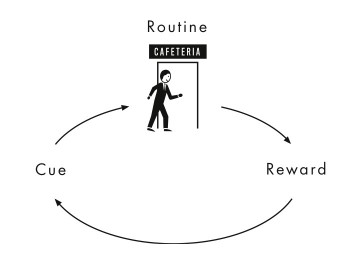Can a GSoC project beat Cambridge Analytica at their own game?
A few weeks ago, I proposed a GSoC project on the topic of Firefox and Thunderbird plugins for Free Software Habits.
At first glance, this topic may seem innocent and mundane. After all, we all know what habits are, don't we? There are already plugins that help people avoid visiting Facebook too many times in one day, what difference will another one make?
Yet the success of companies like Facebook and those that prey on their users, like Cambridge Analytica (who are facing the prospect of a search warrant today), is down to habits: in other words, the things that users do over and over again without consciously thinking about it. That is exactly why this plugin is relevant.
Many students have expressed interest and I'm keen to find out if any other people may want to act as co-mentors (more information or email me).
One Facebook whistleblower recently spoke about his abhorrence of the dopamine-driven feedback loops that keep users under a spell.
The game changer
Can we use the transparency of free software to help users re-wire those feedback loops for the benefit of themselves and society at large? In other words, instead of letting their minds be hacked by Facebook and Cambridge Analytica, can we give users the power to hack themselves?
In his book The Power of Habit, Charles Duhigg lays bare the psychology and neuroscience behind habits. While reading the book, I frequently came across concepts that appeared immediately relevant to the habits of software engineers and also the field of computer security, even though neither of these topics is discussed in the book.

Most significantly, Duhigg finishes with an appendix on how to identify and re-wire your habits and he has made it available online. In other words, a quickstart guide to hack yourself: could Duhigg's formula help the proposed plugin succeed where others have failed?
If you could change one habit, you could change your life
The book starts with examples of people who changed a single habit and completely reinvented themselves. For example, an overweight alcoholic and smoker who became a super-fit marathon runner. In each case, they show how the person changed a single keystone habit and everything else fell into place. Wouldn't you like to have that power in your own life?
Wouldn't it be even better to share that opportunity with your friends and family?
One of the challenges we face in developing and promoting free software is that every day, with every new cloud service, the average person in the street, including our friends, families and co-workers, is ingesting habits carefully engineered for the benefit of somebody else. Do you feel that asking your friends and co-workers not to engage you in these services has become a game of whack-a-mole?
Providing a simple and concise solution, such as a plugin, can help people to find their keystone habits and then help them change them without stress or criticism. Many people want to do the right thing: if it can be made easier for them, with the right messages, at the right time, delivered in a positive manner, people feel good about taking back control. For example, if somebody has spent 15 minutes creating a Doodle poll and sending the link to 50 people, is there any easy way to communicate your concerns about Doodle? If a plugin could highlight an alternative before they invest their time in Doodle, won't they feel better?
If you would like to provide feedback or even help this project go ahead, you can subscribe here and post feedback to the thread or just email me.
